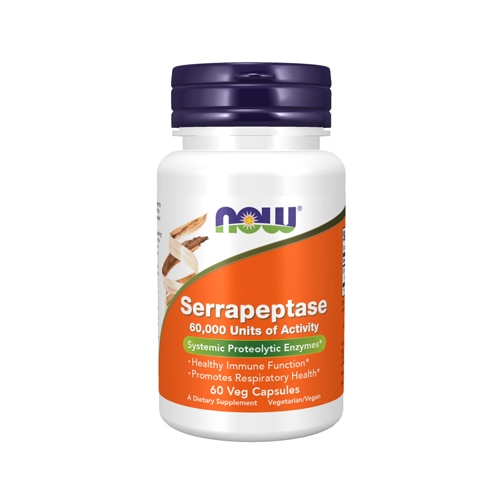The lymphatic system is the body’s inner “drainage system” that involves an extensive network that protects the body from outside threats. When it’s working properly, the lymphatic system works to defend the body from invaders. But in cases of lymphatic dysfunction, your ability to fight infections is weakened and so is the strength of your
immune system.
That’s why it’s so important to maintain a healthy lymphatic system that will keep inflammation and fluid levels balanced, even in the face of potentially dangerous organisms or viruses.

What Is the Lymphatic System?
The lymphatic system is a critical part the of the immune system that protects us from illness and damaging inflammation. It’s made up of a network of blood vessels, lymph nodes and fluids.
The lymphatic system includes these important players:
- Lymphatic vessels: Carry essential fluids through “valves.” This fluid is called “lymph” and the clear, watery liquid stores our white blood cells, plus protein molecules, salts, glucose and other substances, along with bacteria.
- Lymph nodes: Bean-shaped structures that filter out bacteria and produce white blood cells. Lymph nodes are able to detect harmful organisms, which triggers them to make more infection-fighting white blood cells, which are called lymphocytes.
- Tonsils: Located at the back of your throat and responsible for filtering bacteria
- Adenoids: Located at the back of your nose and responsible for protecting the lungs and digestive system
- Spleen and thymus: Organs in charge of scanning the blood, removing dangerous microbes, creating white blood cells, and destroying old or damaged red blood cells.
Here’s how it all works: When we come into contact with any foreign substance, threat or toxin, the invader is met by our lymphatic fluid. This fluid containing the dangerous organisms is trapped inside the lymph nodes, which then attack the perceived threat by destroying it with white blood cells. The white blood cells are then replenished after they are used to defend the body.
Another important role of the lymphatic system is keeping our fluid levels balanced. This mechanism prevents abnormal fluid retention and painful swelling. Blood vessels and lymphatic vessels work to eliminate extra fluid from the body.
The lymphatic system doesn’t work properly when it’s overly stressed. When the lymph nodes detect an infection or virus, inflammation occurs. Over time, an overtaxed lymphatic system will weaken the immune system and make you more vulnerable to infection and disease.
Best Ways to Support Lymphatic Health
It’s important to maintain a healthy lymphatic system so that your body can continue to defend itself from invaders. Here are the best ways to support this important protective system:
1. Eat an Anti-Inflammatory Diet
To maintain a healthy lymphatic system, it’s important to keep inflammation at bay and maintain a healthy weight. Research
shows that obesity influences lymphatic function.
One of the best ways to support lymphatic health is by eating a diet rich in
anti-inflammatory foods and low in inflammation-causing foods.
Put simply, focus on eating fresh, whole foods that don’t contain chemicals or additives that will tax your digestive and immune systems. Processed foods are full of additives that can inhibit the body’s ability to defend itself properly. Added sugars will also promote inflammation, and so can common allergens, like conventional dairy, gluten and shellfish.
The best healing and nourishing foods include:
- Leafy green vegetables (spinach, kale, Swiss chard, mustard greens, etc.)
- Cruciferous vegetables (broccoli, cabbage, cauliflower, etc.)
- Berries (blueberries, strawberries, raspberries, etc.)
- Nuts and seeds (flaxseeds, chia seeds, hemp seeds, almonds, walnuts, etc.)
- Omega-3 foods (wild salmon, walnuts, egg yolks)
- Unrefined oils (extra virgin olive oil, coconut oil, avocado oil)
- Herbs and spices (turmeric, ginger, garlic, cilantro)
2. Get enough exercise
For lymphatic system health, it’s important to keep fluids circulating throughout the body. Exercise and movement will improve blood and fluid circulation, and allow nutrients to reach your cells. Any kind of physical activity will help, including yoga, walking, jogging, biking and swimming.
Exercise will also help you to maintain a healthy weight, which plays a role in lymphatic system health.
Research suggests that obesity may result in lymphatic dysfunction, and aerobic exercise was able to decrease inflammatory cell accumulation and improve lymphatic function.
3. Massage therapy
Massage therapy is another excellent way to prevent fluid buildup and promote tissue repair. A specialized form of massage therapy is called “lymphatic drainage massage,” which has
shown to help cells to release toxins and break up lymph congestion. The best massages activate the lymphatic system and help flush excess fluid from within your tissues.
4. Try Infrared Sauna Treatment
Infrared sauna treatment is an excellent way to promote detoxification by increasing sweat production and allowing the removal of more toxins from body tissue. It can also help to promote blood flow and tissue healing, which is important for maintaining lymphatic health.
Studies report that
infrared sauna may improve symptoms of lymphedema, which is when swelling occurs in the arms or legs because of lymph node damage. The sauna treatment improved swelling and overall quality of life for lymphedema patients.




